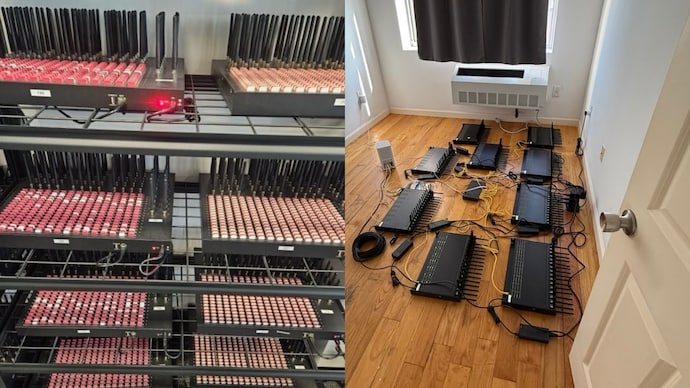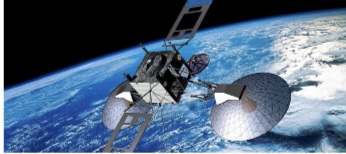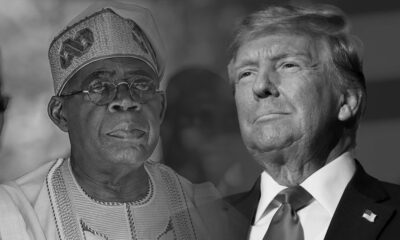Tech
WhatsApp Disputes FCCPC’s Privacy Violation Allegation, Meta To Appeal $220m Fine
WhatsApp, the popular messaging app owned by Meta, has disagreed with the Federal Competition and Consumer Protection Commission’s (FCCPC) allegation of privacy violation. The FCCPC had imposed a $220 million fine on Meta for allegedly violating the privacy of Nigerian users.
In a statement, WhatsApp said it is committed to protecting the privacy of its users and disagrees with the FCCPC’s decision. The company stated that it has taken steps to ensure compliance with data protection regulations in Nigeria and is committed to maintaining the highest standards of data protection.
WhatsApp also stated that it has engaged with the FCCPC to address their concerns and is disappointed with the fine imposed. The company added that it will appeal the decision, as it believes it has done nothing wrong.
The FCCPC had alleged that Meta violated the privacy of Nigerian users by sharing their data with third-party companies, including its parent company, Facebook. The commission also alleged that Meta failed to obtain the consent of Nigerian users before sharing their data.
The fine imposed on Meta is one of the highest in Nigeria’s history, and it has sparked debate about data protection regulations in the country. The Nigerian government has been under pressure to strengthen data protection laws, and the FCCPC’s decision is seen as a move to enforce compliance.
The appeal process is expected to be a long and contentious one, with WhatsApp and Meta determined to clear their names. The outcome of the appeal will have significant implications for data protection regulations in Nigeria and could set a precedent for future cases.
In a related development, the Nigerian government has announced plans to review the country’s data protection laws to ensure they are in line with international best practices. The government has also established a task force to investigate data privacy violations in the country.
The move by the FCCPC to fine Meta has been praised by some as a bold step to protect the privacy of Nigerian citizens. However, others have criticized the commission for being too harsh and not giving Meta a fair hearing.
Tech
Secret Service Foils Telecom Plot to Cripple New York Networks

Secret Service Foils Telecom Plot to Cripple New York Networks
The United States Secret Service has disrupted a sophisticated telecommunications network capable of shutting down cellular systems in New York City as world leaders gather for the United Nations General Assembly (UNGA).
The agency disclosed on Tuesday that, in August, it discovered more than 300 SIM servers and 100,000 SIM cards in parts of New York, New Jersey, and Connecticut.
“This network had the power to disable cell phone towers and essentially shut down the cellular network in New York City,” said Matt McCool, a special agent in charge of the operation.
Officials said the devices were uncovered within 35 miles (56km) of the UN headquarters, where over 100 world leaders and delegations are meeting for the 80th UNGA anniversary.
McCool described the operation as a “well-organised and well-funded scheme” linked to nation-state actors, organised crime groups, cartels, and terrorist organisations.
Investigators believe the equipment could send text messages to the entire US population within 12 minutes, disable mobile towers, and even disrupt emergency communications through denial-of-service attacks.
The Secret Service confirmed that the equipment was seized from SIM farms operating out of abandoned apartments spread across at least five sites, though exact locations were not disclosed.
According to officials cited by the New York Times, the discovery followed an investigation into telephonic threats directed at three senior US government officials earlier this year—one from the Secret Service and two from the White House.
CBS News also reported that agents recovered 80 grams of cocaine, illegal firearms, computers, and mobile phones during the raids.
The Secret Service said investigations are ongoing as leaders converge in Manhattan amid heightened security concerns.
Tech
China Accuses Nvidia of Monopoly Breach Amid Renewed US-China Trade Talks

China Accuses Nvidia of Monopoly Breach Amid Renewed US-China Trade Talks
China’s State Administration for Market Regulation has accused American chipmaking giant, Nvidia, of violating the country’s anti-monopoly laws, a charge that underscores the deepening strategic rift between Beijing and Washington over control of the semiconductor industry.
Although the regulator stopped short of disclosing specific details of the alleged violations, it confirmed that its investigation into the company would continue.
The announcement coincided with the second day of high-level trade talks between officials of both countries in Madrid, Spain.
Leading the negotiations were United States Treasury Secretary, Scott Bessent, and China’s Vice Premier, He Lifeng.
At the end of the discussions, Bessent struck a positive note, describing the exchanges as “very good,” while disclosing that a fresh round of talks would be held next month.
The Madrid meeting also broached the issue of TikTok, the Chinese-owned social media platform facing the threat of a US ban unless it is acquired by an American entity.
US President Donald Trump hinted at a breakthrough, writing on his Truth Social account that “young people… will be very happy,” and promising further conversations with President Xi Jinping later this week.
The accusations against Nvidia mark another flashpoint in the ongoing technological rivalry between the two powers.
Washington has tightened restrictions on advanced chip exports to China, citing national security concerns, while Beijing in turn opened its probe into Nvidia last December—moves widely interpreted as tit-for-tat economic retaliation.
Semiconductors remain at the heart of the geopolitical contest.
Analysts say the Madrid talks were expected to weigh heavily on the future of chip supply chains and market access, given the role of Nvidia’s processors in powering artificial intelligence and high-performance computing worldwide.
Diplomatic watchers note that while both sides are keen to project progress, the combination of regulatory investigations, export controls, and looming political deadlines suggests that the competition for technological supremacy will define US-China relations for years to come.
Tech
Nigeria to Launch Four Satellites to Boost Security

The Nigerian Government has approved the launch of four satellites to aid observation and fight against insecurity in the country.
This was announced by the Minister of Innovation, Science, and Technology, Chief Uche Nnaji, at the 22nd National Council on Innovation, Science, and Technology (NCIST) in Abuja.
Diaspora Watch reports that the satellites include three Earth observation satellites and one Radar Aperture Satellite.
According to the Minister, these satellites will enable the military to effectively monitor and respond to security threats without relying on foreign image and data purchases, noting with these satellites, Nigeria will have greater control over its security surveillance.
The minister emphasized the need to bridge the gap between research and real-world impact.
He noted that valuable research conducted in Nigerian universities and institutions has often remained underutilized due to lack of support, financing, and mentorship for young innovators.
The minister called for a new approach, where every “research has a roadmap to industry, and innovation is commercialized for national prosperity”.
The launch of these satellites will not only enhance security but also promote research and development in the country.
It will create opportunities for youths to develop their skills and contribute to the country’s technological advancement.
The 22nd NCIST, which was themed “Research, Development, Innovation, and Commercialization: A Cycle for National Prosperity,” served as a platform for stakeholders to discuss the role of innovation and technology in driving national development.
The launch of the satellites is a significant step towards achieving this goal.
-

 News3 days ago
News3 days agoTrump, Mamdani Strike Conciliatory Tone After ‘Productive’ White House Meeting
-

 News3 days ago
News3 days ago‘Tremendous Progress’ in Ukraine Peace Talks as Trump Slams Kyiv Over ‘Ungratefulness’
-

 News3 days ago
News3 days agoKwara Church Attack: Police, DSS Arrest Suspected Bandits’ Armourer, Logistics Suppliers
-

 News3 days ago
News3 days agoNigeria Reels as 315 Pupils Abducted in Niger, 50 Escape
-

 News3 days ago
News3 days ago‘Genocide in Nigeria!’ Trump Roars, Threatens Action
-

 Analysis5 days ago
Analysis5 days agoOur Schoolgirls Again? By Alabidun Shuaib AbdulRahman










